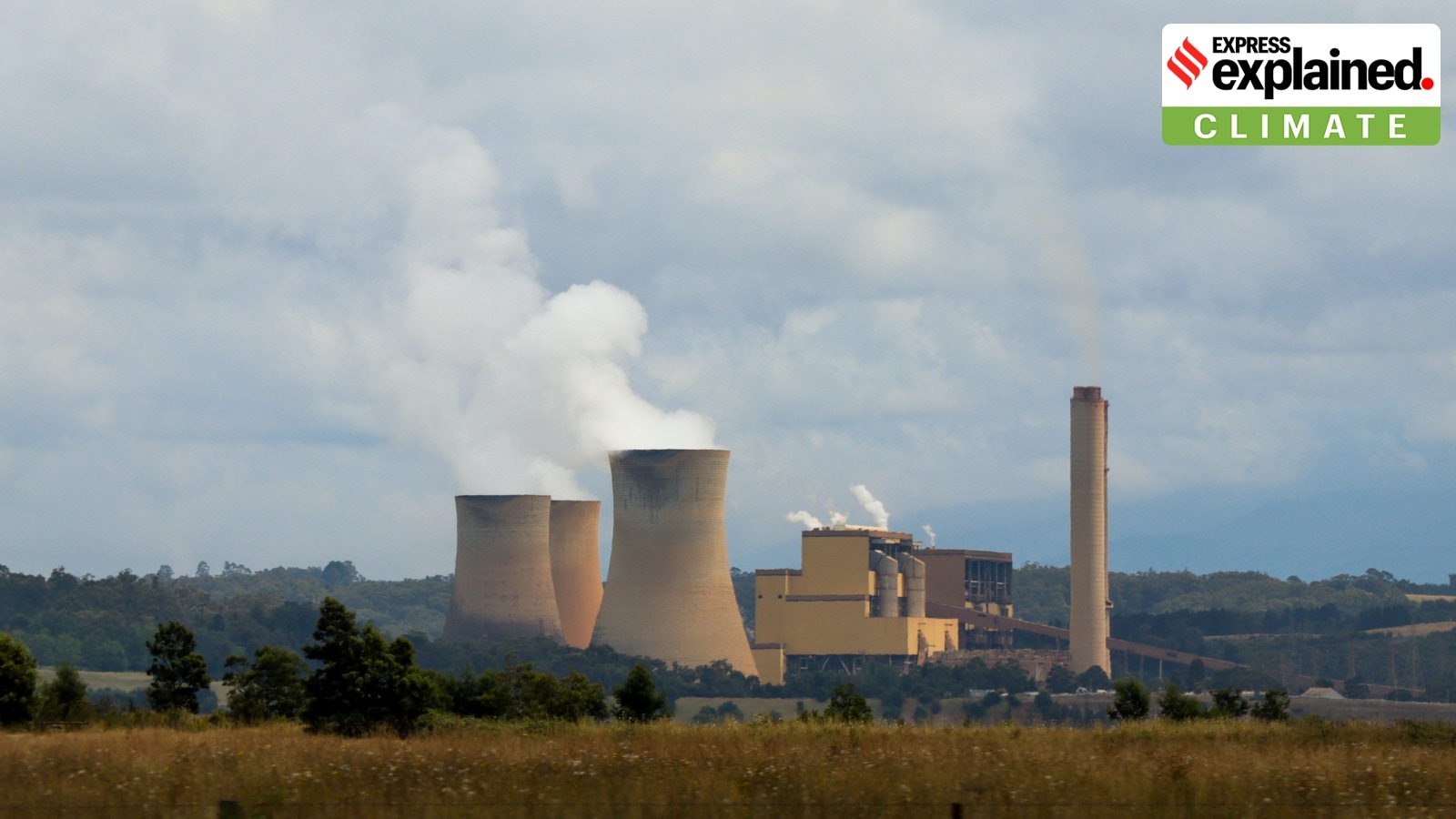Carbon emissions from fossil fuel companies linked to numerous deadly heatwaves: What a new study says
The study analysed 213 heatwaves that occurred worldwide between 2000 and 2023. It showed that due to global warming, heatwaves between 2000 and 2009 became about 20 times more likely, and about 200 times more likely between 2010 and 2019
 he researchers found that the total emissions from these companies and their products contributed about half of the increase in intensity of heatwaves since pre-industrial times. (Photo: Wikipedia Commons)
he researchers found that the total emissions from these companies and their products contributed about half of the increase in intensity of heatwaves since pre-industrial times. (Photo: Wikipedia Commons)The 2023 heatwave during which at least 68 people died in Balliya, Uttar Pradesh. The 2021 heat dome over the Pacific Northwest that killed hundreds. The 2003 heatwaves that resulted in the deaths of 30,000 across Europe.
These heatwaves — and 210 others — have been directly linked to carbon emissions from the world’s biggest fossil fuel companies for the first time, according to a new study. The analysis has found that the emissions from any of the 14 biggest companies — such as ExxonMobil and Chevron — were enough to cause 50 heatwaves that would have been impossible without climate change.
The study, ‘Systematic attribution of heatwaves to the emissions of carbon majors’, was published in the journal Nature on September 10. It was carried out by a team of researchers based at different international institutions, such as ETH Zurich (Switzerland), the International Institute for Applied Systems Analysis (Austria), Climate Accountability Institute (the USA), Tilburg University (The Netherlands), University of Oxford (the UK), Climate and Environment Sciences Laboratory (France), and Vrije Universiteit Brussel (Belgium).
The research can play a crucial role as evidence in legal battles to hold fossil fuel companies accountable for the damage being caused by the climate crisis.
More intense and frequent heatwaves
The study analysed 213 heatwaves that occurred worldwide between 2000 and 2023. It showed that due to global warming, heatwaves between 2000 and 2009 became about 20 times more likely, and about 200 times more likely between 2010 and 2019. Also, out of the 213 heatwaves, 55 were made at least 10,000 times more likely by soaring global temperatures.
The research also revealed that heatwaves that occurred between 2000 and 2009 were 1.4 degrees Celsius hotter due to global warming, while those that took place between 2010 and 2019 were made 1.7 degrees Celsius warmer.
These heatwaves have proven to be lethal across the globe. According to a World Meteorological Organization (WMO) report, between 2000 and 2019, at least 4,89,000 people died annually from heat, many from climate change-fueled heatwaves.
Note that the Earth has become around 1.2 degrees Celsius warmer than it was in the late 1800s (before the Industrial Revolution). The 20-year average warming for the period 2001–2020, relative to 1850–1900, is 0.99 degrees Celsius.
Link with fossil fuel companies
To assess the link between carbon emissions from fossil fuel companies and heatwaves, the scientists first looked at the biggest disaster database, EM-DAT, to identify heatwaves with significant casualties, economic damages and calls for international assistance.
They then accessed the Carbon Majors Database to understand carbon and methane emissions from 180 of the world’s largest oil, gas, coal, and cement producers.
Yann Quilcaille, climate scientist at ETH Zurich and lead author of the study, told NPR, “We ran a climate model to reconstruct the historical period, and then we ran it again but without the emissions of a specific carbon major [fossil fuel and cement companies], thus deducing its contribution to global warming.”
The researchers found that the total emissions from these companies and their products contributed about half of the increase in the intensity of heatwaves since pre-industrial times.
They also examined the impact of emissions from each carbon major on each heatwave in their analysis. For example, it was found that the emissions linked to Saudi Aramco made 51 heatwaves at least 10,000 times more likely.
Dr Davide Faranda, research director at the French National Centre for Scientific Research (CNRS), in a statement, said, “This study shows that fossil fuel and cement companies are not just abstract contributors to climate change — their emissions have directly fueled heatwaves that would otherwise have been impossible, making them responsible for human suffering, ecosystem losses, and economic damages worldwide.”
The significance
Researchers have said that their findings could be used in courts as evidence and help hold fossil fuel companies accountable for the damages they have caused.
This is significant, especially in the context of the July ruling by the International Court of Justice (ICJ) in which it held that countries — and by extension companies — could be held responsible for climate change impacts, and people and communities affected are entitled to reparations.
Cassidy DiPaola, spokesperson for the Make Polluters Pay campaign, in a statement, said, “The ICJ just said that fossil fuel production may be an internationally wrongful act that entitles victims to reparations. Well, here’s the evidence courts have been waiting for. We can finally put a name and a number on who’s responsible for these disasters. The bill is coming due, and it’s time these polluters pay for the damage they’ve done.”
- 01
- 02
- 03
- 04
- 05






































